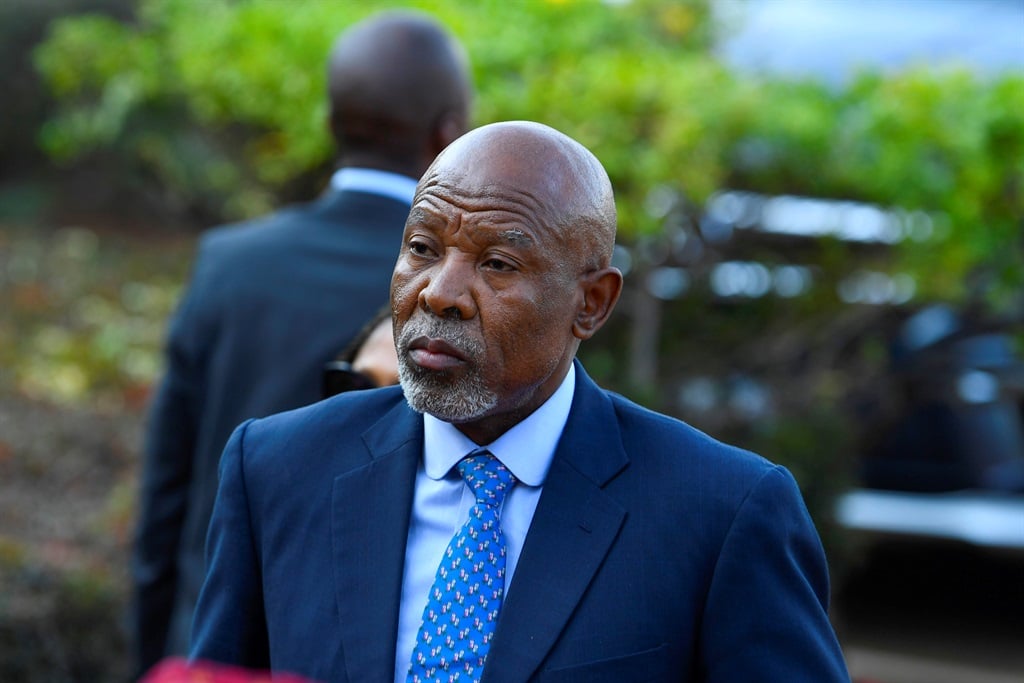Reserve Bank Governor Lesetja Kganyago. (Gallo Images/Frennie Shivambu)
As expected, the SA Reserve Bank’s monetary policy committee (MPC) lowered interest rates by 25 basis points – despite a jumbo cut of 50 basis points in the US overnight.
Following the cut, SA’s repo rate will now be 8%, and the prime rate 11.50%.
The MPC’s decision means the monthly instalment on a new R2-million home loan at the prime rate will be almost R350 cheaper. Since the MPC started hiking rates in 2021, repayments on a R2-million bond surged by R7 000 a month.
SARB Governor Lesetja Kganyago said cooler inflation should be sustained. He said that the MPC expects the repo rate will stabilise “slightly above 7%” next year.
In August, consumer inflation dipped below the SA Reserve Bank’s sweet spot of 4.5%. The MPC wanted to see inflation move closer to the 4.5% midpoint of its 3% to 6% target range before it would lower rates. Inflation has cooled in large part due to fuel prices, which have seen large cuts thanks to a soft oil price and a strong rand. More relief is on its way, with large diesel and petrol price reductions expected at the start of October.
The MPC now expects inflation of 4.6% for 2024 – from 4.9% previously. For 2025, it now forecasts 4.0%, from 4.4%
“A ‘soft landing’ is looking more likely, after the worst inflation surge in a generation, but it is not inevitable,” Kganyago said, warning of larger-than-expected electricity price or wage increases. He added that oil prices and food inflation are also uncertain.
Interest rates – which remain at 15-year highs, even after Thursday’s cut – have been weighing on an economy dragged down by load shedding and other problems. The SA economy is only 0.3% bigger than a year ago, the latest GDP numbers for the second quarter showed recently.
Lower interest rates should ease some financial stress and leave consumers with more money to spend, which – along with more a more stable electricity supply and an expected boost of R30 billion in withdrawals from the two-pot retirement system – may go some way towards jump-starting the economy. Since the start of September, pension members have been allowed to withdraw from the “savings” component of their retirement savings, depending on how much they have available, and capped at a maximum of R30 000. This is expected to provide a sizeable boost to retail spending.
On Thursday, the Reserve Bank said that it has upgraded its growth expectation for next year to 1.6% (from 1.5%) and 1.8% (from 1.7%) in 2025.
The next MPC meeting is on 21 November, and another cut is expected.

